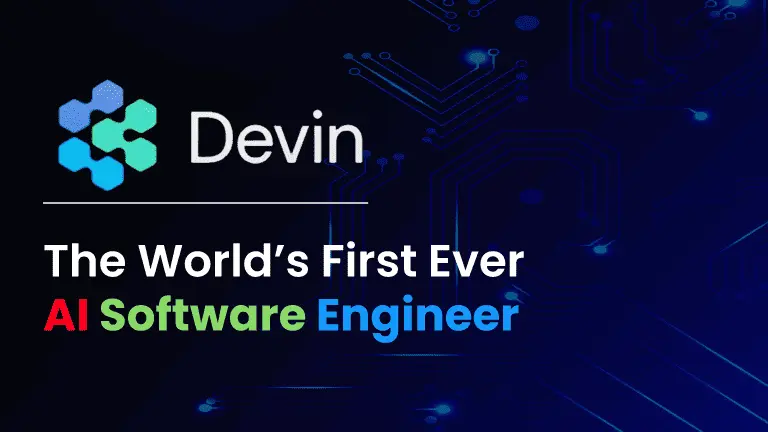The software development industry is undergoing a paradigm shift, and at the forefront of this revolution is Devin, the world’s first fully autonomous AI software engineer. Created by Cognition Labs, Devin represents a monumental leap forward in artificial intelligence and its application to the complex world of coding.
The Birth of a Digital Engineer
Devin is more than just a tool; it’s an intelligent system capable of independently tackling software development projects from conception to completion. Unlike traditional AI assistants that offer suggestions or automate specific tasks, Devin can autonomously:
- Understand and interpret complex requirements: Devin can break down vague or ambiguous project specifications into actionable tasks.
- Design software architecture: It can create efficient and scalable software blueprints.
- Write, test, and debug code: Devin is proficient in multiple programming languages and can write clean, optimized code.
- Deploy and maintain software: It can handle deployment to various environments and manage updates.
- Learn and adapt: Devin continuously improves its skills through experience and feedback.
How Devin Works
At the core of Devin is a sophisticated blend of machine learning, natural language processing, and computer vision. This combination allows it to:
- Comprehend natural language: Devin can understand and respond to human language, making collaboration seamless.
- Access and process information: It can leverage vast amounts of code repositories, documentation, and online resources.
- Reason and problem-solve: Devin can analyze complex problems and develop effective solutions.
- Generate code: It can write code in various programming languages, adhering to best practices.
- Test and optimize: Devin can conduct rigorous testing and refine its code for optimal performance.
A New Era of Software Development
The implications of Devin are far-reaching. It has the potential to:
- Increase developer productivity: By automating routine tasks, developers can focus on higher-level problem-solving.
- Accelerate software development cycles: Devin can significantly reduce development time.
- Improve software quality: With its ability to analyze and optimize code, Devin can produce higher-quality software.
- Democratize software development: By reducing the technical barriers to entry, Devin can empower more people to build software.
Challenges and Considerations
While Devin represents a significant advancement, it’s essential to acknowledge the challenges and ethical considerations:
- Job Displacement: The rise of AI in software development raises concerns about job security for human engineers.
- Intellectual Property: Ensuring the protection of intellectual property when AI is involved is crucial.
- Bias and Fairness: AI systems can inherit biases from the data they are trained on, requiring careful monitoring.
- Ethical Decision-Making: AI systems must be programmed to make ethical decisions, especially in critical applications.
The Future of AI and Software Development
Devin is just the beginning. We can expect to see even more sophisticated AI tools emerging in the coming years. These tools will likely:
- Collaborate with human developers: AI and humans will work together to create even more innovative software.
- Specialize in specific domains: AI will become experts in particular fields, such as financial software or medical applications.
- Understand and generate complex code: AI will be able to tackle increasingly complex software challenges.
The future of software development is bright, with AI playing a pivotal role. As we continue to push the boundaries of technology, it’s essential to approach these developments with both excitement and caution. By addressing the challenges and harnessing the potential, we can create a future where AI and humans work together to build a better world.
